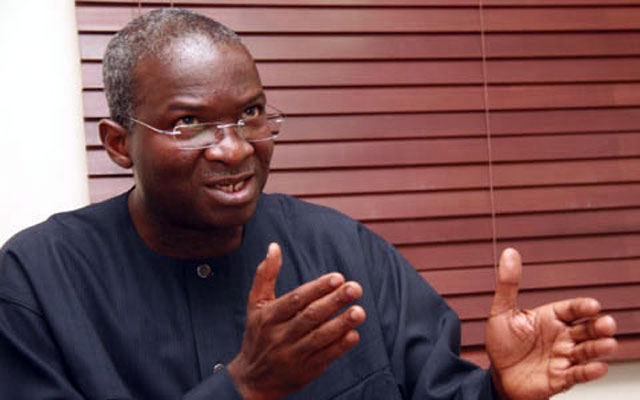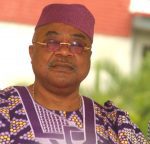Fashola Refuses To Call Off Privatization Of Power Sector


The Minister of Power, Works and Housing Babatunde Fashola has said he will not back down from the privatisation of the power sector.
Fashola emphasised that he would rather insist on follow-up of the on-going reform in the maximum benefit of Nigerians.
In Fashola’s address During the executive session at the third edition of National Council on Power (NACOP), said: “Let me set the context by once again reminding all of us that the power sector has been privatised and is largely in the hands of the private sector.
“Therefore, the work that needs to be done is largely the responsibility of the private sector.
“Our role as governmental institutions at Federal and state levels is to implement the laws, enunciate policies and take actions that help the private sector play its part effectively.
“Our roles in this regard are well set out in the Electric Power Sector Reform Act 2005 pursuant to which the privatisation of the power sector took place. That law, which I urge everybody to read, clearly sets out my role as minister, which is to administer the law in Section 100.
“As we are all aware, there have been comments about how effective privatisation has been in the power sector and some people have called for its cancellation, which I disagree with.”
He added: “However, I agree that there are problems, I understand that four years post-privatisation is a transition period, and some more work needs to be done before the expected benefits of privatisation come to fruition.
“That is why we developed the Power Sector Recovery Programme (PSRP), which are a set of policies, programmes and actions aimed at solving generation, transmission, distribution, liquidity, metering, estimated billing, energy theft, safety and other challenges.
“While we are beginning to see results of increased generation up to 7001MW on September 12, 2017, Transmission up to 6,700 MW and Distribution 4,600, it is not yet enough.”
The challenged states and local governments to be ready to play their own role in ensuring the power sector reforms succeed in the interest and growth of the country.
Fashola said the largest beneficiaries of the power sector reforms were Nigerians.
The minister said: “Among some of the reform actions contained in the Power Sector Recovery Programme being undertaken at Federal Government level, there are other areas of reform, where progress will be defined by what happens at the state and local government and this is one of the reasons why we chose to discuss this theme at this council, where all the states are represented.
“For example, out of the estimated MDA debts of about N90 billion claimed by the DisCos, only about N27billion has been verified as debts owed by the Federal Government. There are invoices which show that other parts of the debt are attributable to service points at states and local governments.
“I will urge first that states and local governments insist that their buildings are metered so that they can budget for and pay for the energy they use. It will turn out to be cheaper than diesel-generated power. It will also help reduce the loss of income by DisCos.”








